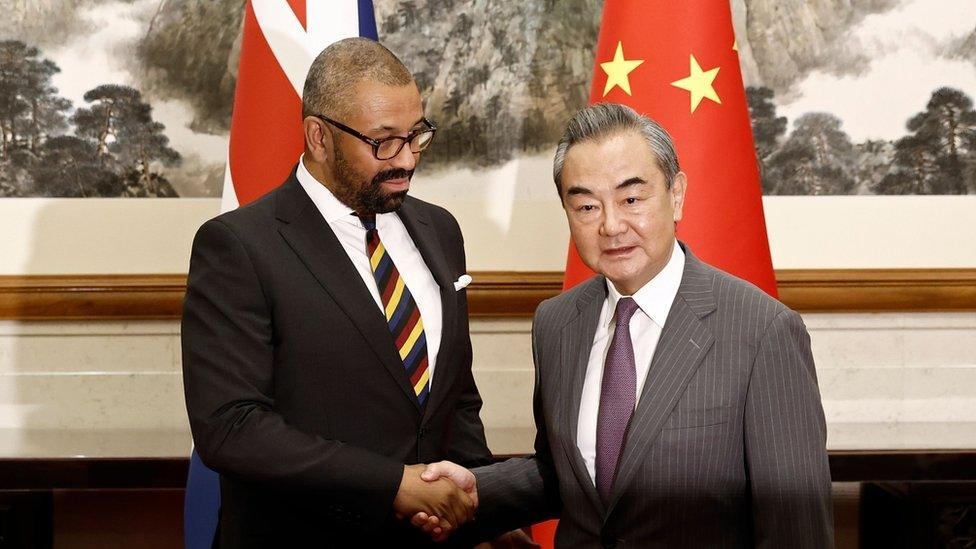The United Kingdom has identified China as both a significant strategic challenge and an indispensable economic partner, highlighting the complex and multifaceted nature of their bilateral relationship. As tensions rise over geopolitical and security concerns, British officials emphasize the importance of maintaining robust trade ties with the world’s second-largest economy. This delicate balancing act underscores the broader dilemmas faced by Western nations in navigating cooperation and competition with China amid shifting global dynamics.
UK Identifies China as Key Strategic Challenge Amid Growing Geopolitical Tensions
The UK government has explicitly marked China as a primary strategic challenge in its latest defense and foreign policy review, reflecting escalating geopolitical tensions across the Indo-Pacific region. While concerns over China’s military expansion, cyber activities, and influence operations shape Britain’s security outlook, officials emphasize the necessity of maintaining a pragmatic relationship with Beijing. The complexity of this dynamic is underscored by mutual economic interdependence, which the UK regards as vital for its post-Brexit trade ambitions.
Highlighting this dual approach, British policymakers have outlined several key areas of focus:
- Security vigilance: Enhancing intelligence cooperation with allies to counter espionage and safeguard critical infrastructure.
- Trade diversification: Pursuing new partnerships while sustaining robust trade ties with China, particularly in technology and manufacturing sectors.
- Diplomatic engagement: Balancing firm stances on human rights and territorial disputes with continuous dialogue to prevent conflict escalation.
| Strategic Challenge | Economic Importance | |
|---|---|---|
| Military | Increasing naval presence in contested waters | Partnering on infrastructure projects |
| Cybersecurity | Rising cyber threats and espionage | Collaborating on tech innovation |
| Trade | Supply chain vulnerabilities | Largest export market in Asia |
Balancing Act Economic Interdependence Drives UK Policy Towards China
In the complex landscape of international relations, the UK is walking a tightrope as it addresses China’s growing influence. While the UK government openly identifies China as a significant strategic challenge, it simultaneously acknowledges China’s indispensable role in the global economy. This duality is reflected in policies designed to mitigate risks without severing deeply intertwined trade links. British officials emphasize the importance of maintaining open channels for dialogue and commerce, especially in sectors where China’s market presence is pivotal. Key industries like technology, finance, and manufacturing continue to rely heavily on Chinese investments and partnerships, underscoring the economic pragmatism that guides London’s policy stance.
Key aspects shaping the UK’s approach include:
- Protecting national security while engaging with Chinese tech firms
- Expanding trade opportunities in renewable energy and green technologies
- Encouraging Chinese investment under stringent regulatory oversight
- Collaborating on global challenges such as climate change and public health
| Sector | UK Exports to China | Chinese Investment in UK |
|---|---|---|
| Technology | £2.5 billion | £1.8 billion |
| Finance | £1.2 billion | £2.3 billion |
| Manufacturing | £1.7 billion | £1.5 billion |
| Green Energy | £850 million | £1.1 billion |
Experts Urge Enhanced Engagement and Vigilance to Navigate Complex UK-China Relations
In light of mounting geopolitical tensions, analysts emphasize that the United Kingdom must adopt a multi-faceted approach to maintain stability and foster growth in its economic relationship with China. This strategy calls for a balance between cautious diplomacy and proactive engagement to address shared challenges, such as trade imbalances, intellectual property rights, and human rights concerns. Experts highlight that ignoring the complexity of UK-China ties could jeopardize not only economic prospects but also broader international security interests.
Key recommendations from experts include:
- Enhanced diplomatic dialogue focusing on transparency and accountability
- Strengthening collaborative frameworks in technology and green energy sectors
- Vigilant monitoring of investment flows to safeguard national security
- Promotion of cultural and educational exchanges to build mutual trust
| Area of Focus | UK’s Strategic Priority | Potential Challenge |
|---|---|---|
| Trade | Diversification of supply chains | Tariff and regulatory barriers |
| Technology | Collaborative innovation | Intellectual property protection |
| Security | Risk assessment of investments | Espionage concerns |
Insights and Conclusions
As the UK navigates its complex relationship with China, balancing caution with cooperation remains paramount. Acknowledging China as both a significant challenge and an indispensable economic partner underscores the delicate diplomatic and strategic tightrope that policymakers must walk. How Britain manages this duality will have profound implications not only for its own future but also for the broader landscape of international relations and global trade.
